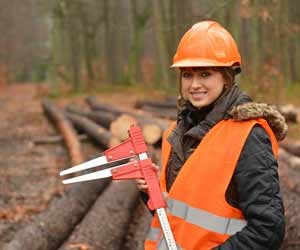Seasonal Recreational Aide / Lifeguard Jobs
America’s national forests and parklands offer a wide array of recreational activities. Hiking, biking, boating, fishing and camping are all available, but these popular activities only scratch the surface of the recreation opportunities and programs offered to visitors.

With national forest lands located across the nation, visitors can access rugged mountains, lush valleys, rolling grasslands, breathtaking deserts, majestic forests and miles upon miles of rivers, lakes and gorgeous coastline.
The activities are as varied as the terrain, and visitors to the parklands can enjoy climbing, caving, boating, water sporting, wildlife and wildflower viewing, hunting and horseback riding. In winter, visitors can participate in winter sports such as skiing, snowshoeing, snowmobiling and tobogganing. Seasonal recreational aides and lifeguards help bring these activities to the public, so that we can all experience the beauty and wonder of America’s national forests and parklands safely throughout the season.
FACT! Trees don’t just drink water- they improve its quality by filtering rain water and providing protection for natural aquifers and watersheds. Water from our national forests provides clean, drinkable water for over 3,400 communities, and about 60 million individuals.
Job Descriptions
- Seasonal Recreational Aides and Lifeguards are in charge of visitor fun and safety in some of the most popular summer activities in the national forest service lands.
- Lifeguards patrol the rivers, lake and coastlines of the national forest service lands to ensure the safety of visitors, and employ rescue and resuscitation techniques if necessary.
- Recreational Aides assist rangers in the development and implementation of parkland and campground recreation services, areas and activities, and maintain and test recreation equipment.
- Recreation Assistants are typically assigned to one of the twenty-two Forest Service Job Corps Civilian Conservation Centers to support the educational recreation programs run by the facilities. Recreation assistants work under recreation specialists to maintain recreational facilities and equipment, provide support and assistance in physical education, recreational activities, and arts and crafts. They provide guidance for students in the social dynamics and skills relevant to the workplace, participate in the behavioral management system and acceptable standards of conduct.
- Recreation Specialists manage recreational and advocate programs at the Forest Service Job Corps Civilian Conservation Centers. They plan, execute and supervise a variety of recreational program activities to motivate proper attitude, behavior and participation in a diverse group of students with a wide variety of interests.
FACT! A single acre of forest land can absorb up to six tons of carbon dioxide and emit four tons of oxygen, enough breathable air to meet the annual oxygen requirements for eighteen people.
Quick Summary:
- Recreational activities vary by park, and are as diverse as the national forest lands themselves.
- Besides camping, hiking and backpacking, visitors to the national forests can enjoy climbing, caving, fishing, boating and water sports, wildlife and wildflower viewing, hunting and horseback riding.
- Recreational aides, assistants, and specialists are all required to have a high school diploma or equivalency, a valid driver’s license, and one year of experience in the field.
- Lifeguards must be at least 18 years of age, hold a Water Safety Instructor Certificate, a valid driver’s license, and be certified in American Red Cross first aid techniques.

